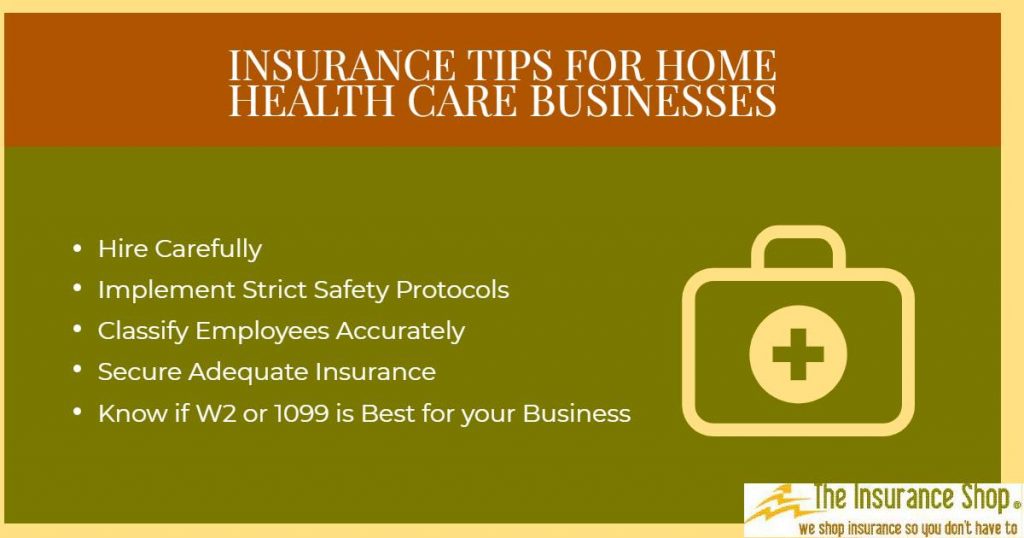Owning and operating a home health care agency can be complex. The clients you deal with can have a wide range of health issues you and your employees need to be familiar with. Some clients may be small and frail, but very mobile; while another client may be large and immobile. Some may have mental problems like dementia while other clients may have mobility issues like the aftermath of a stroke. With each of these clients comes a unique set of risks. These risks all determine what type of insurance you need and how much that insurance will cost. Here are three tips to help you the next time you shop for home health care workers comp.
Make sure you are classified accurately
For purposes of workers compensation insurance, governance of these programs is left up to the individual states. Most of the states partner with the National Council on Compensation Insurance (NCCI) to determine a classification code for each business and the rate of premium for each code. There are currently more than 700 different codes a business can be classified as. Each industry has multiple classification codes depending upon the scope and scale of the business. Depending upon the actions of your employees while on the job, the amount of premium is reflected through your businesses classification code.
Hire carefully
Unfortunately the home health care industry tends to have a high turnover rate. The two main reasons for this is the stress of the job and the amount of pay for most employees. In order to turn a profit, there is only so much a business owner can pay their employees in order to stay profitable. Because of this fact, it is difficult to keep the best employees around. This is a reason to hire carefully and for the long-term. Sometimes the candidate with the best resume is not as good for your business as the candidate who is the best fit for your business. Finding the best fit is different from business to business based upon the scope of the business and the market that business operates in. Taking additional time to hire the right person will almost always pay off in the long run.
Implement safety protocols
Safety programs are immensely important in the home health care industry. This industry has both a high volume of insurance claims and the claims can be high in severity. The reason for this is because many employees drive their own vehicle to a remote location and many drive to multiple locations throughout the day. The time that your employees drives from location to location makes the liability for accidents that occur the responsibility of the business. This is regardless of whether the employee is on the clock or not. It is important to consider implementing a driver safety program for your home healthcare business.
It is also important to implement safety programs for the time your employees are in the homes with clients. Depending upon the limitations of each client, your employees should be prepared to keep themselves safe first and keep the client safe second. Let them know that they cannot help the client if they do not take care of themselves first. Because of the remote nature of this work, it is important to have weekly face to face meetings with all employees and to discuss safety protocols with them.


